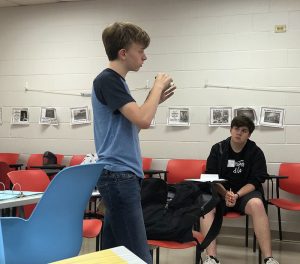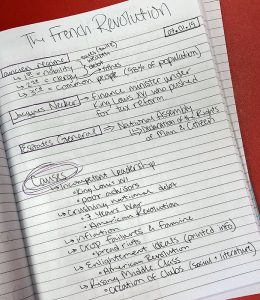
by Chloe Young
What an awesome two weeks it’s been for our Revolutions course students and teachers!
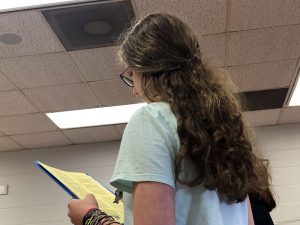
The first day began with making new friends, learning what exactly defines a revolution, and discovering the foundations that caused the American Revolution to explode into a bloody War for Independence. By the second day, our class had dived head-first into discussing, researching, and writing about the daily lives, ideologies, issues, and concerns of the colonists — whether they were Patriots, Neutralists, or Loyalists — who were directly involved in the conflict between Britain and its colonies. Using the books, Revolutions: A Very Short Introduction by Jack A. Goldstone and The Anatomy of Revolution by Crane Brinton, the students worked together to uncover the various aspects of a revolution including common causes, types of leaders and social structures surrounding it, and how the economy is involved. Through Congressional simulation activities throughout the first week, the students were able to fully immerse themselves in the characters they had been assigned while proposing bills in front of other “delegates” and debating their components before voting to either pass or reject them.
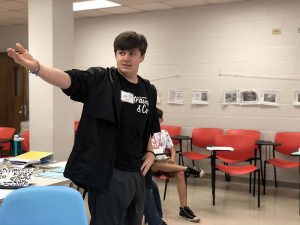
By the end of the week, students had Charles Dickens’ A Tale of Two Cities in hand and our class was off to France! We began the second week discussing the impacts of the American Revolution and Enlightenment ideals, the ancien regime system, important figures such as King Louis XVI and his finance minister Jacques Necker, and the meeting of the Estates General, all leading up to the start of the French Revolution. The students were again assigned a character, this time a historical figure of the French Revolution with land holdings and finances, and our 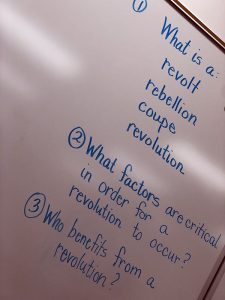 simulation of the National Assembly was in session. Unlike the Congressional simulations, however, this one included taxes and situations that affected each student and had the ability to take their money, land, and estate status. As finances dwindled with heavy taxes and tithes, debates grew heated, proposals were drafted, and voting took place, the students were able to experience the frustrations, hardships, and sense of urgency that the people of the revolution had felt.
simulation of the National Assembly was in session. Unlike the Congressional simulations, however, this one included taxes and situations that affected each student and had the ability to take their money, land, and estate status. As finances dwindled with heavy taxes and tithes, debates grew heated, proposals were drafted, and voting took place, the students were able to experience the frustrations, hardships, and sense of urgency that the people of the revolution had felt.
As our second week together comes to a close, our class is moving past the French Revolution and on to the Russian Revolution. We are also finishing A Tale of Two Cities and getting ready for our final book, George Orwell’s Animal Farm. The students have accomplished so much in such a short time, and we are so proud and in awe of them!
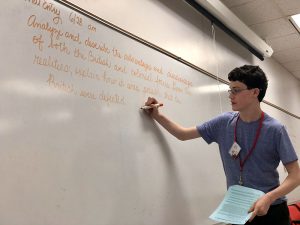
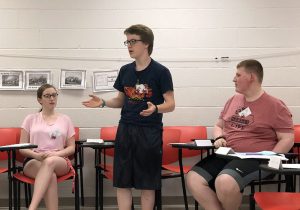
Dr. Lanham and I have had such a great time with this incredible group of students who are full of personality, lots of laughter, and so many intelligent thoughts. While we hope they have learned many things that will help them in their future classes or careers, we also hope that they will hold on to the understanding that history isn’t simply a collection of stories; it is a series of events that had a very real effect on people, friends, and families of the time and has greatly impacted how the world is today. For every simulation, reflection in their journal entries, or group discussion, we hope they will remember not just the big-picture content, but the emotions, hardships, and leading causes of each event and the individuals involved.
